Profile
Dr Gloria Agyeiwaa Antwi Botchway

In a historic milestone for the University of Ghana, Dr Gloria Agyeiwaa Antwi Botchway has become the first woman to earn a PhD in Mathematics from the University of Ghana.
Dr Botchway’s journey from the village of Akaa Buem in the Oti region to becoming the first female to earn a PhD in Mathematics is a demonstration of her resilience and determination.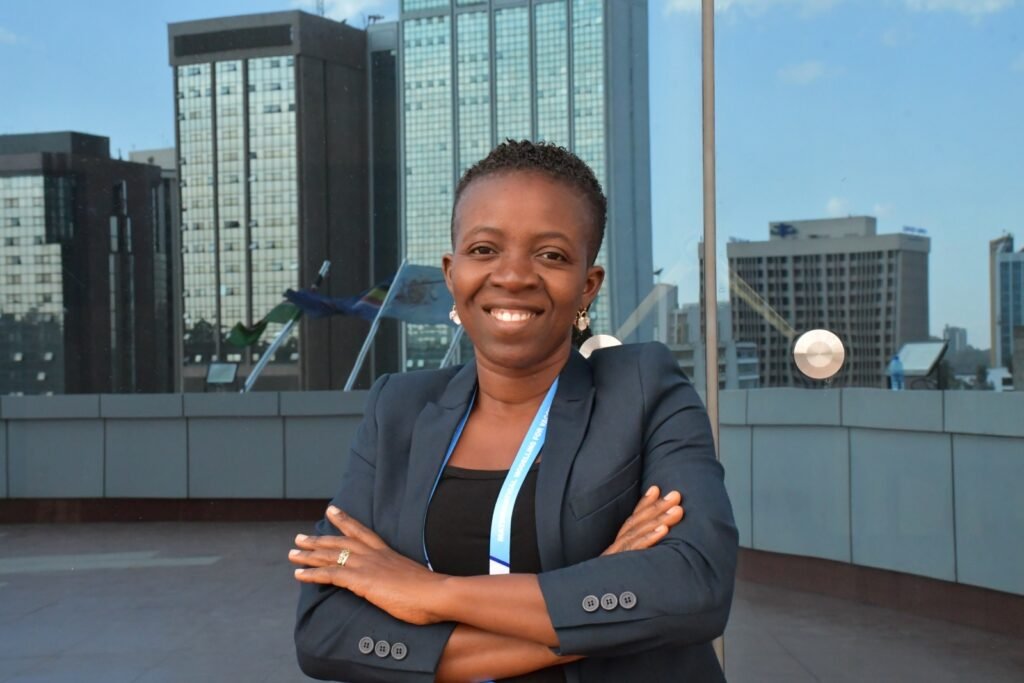
Born into a family of four, she is the second child of her parents. When her family moved to Accra for her mother’s education, they faced significant hardships, living with an aunt who struggled to make an ends meet while living in a crowded compound where the challenges of life were evident.
Her childhood years were not without challenges. At just seven years old, Dr Botchway began hawking goods to help make ends meet.
Her school life was equally challenging. While her classmates brought a variety of foods to school, Dr Botchway often packed leftover banku, which she and her brother would hide to avoid teasing.
After four years in Accra, the family moved to Asamankese, where she attended Life Preparatory School. Following another move to Winneba, she continued her education at University Primary on North Campus.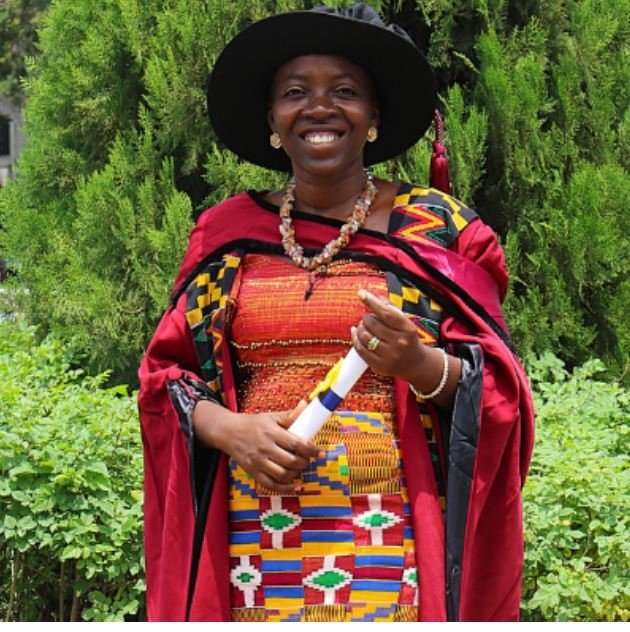
Her experiences in Accra were marked by crime and instability, where gunshots from nearby gang members and police conflicts were a common occurrence.
Despite these hardships, Dr Botchway’s determination never declined. She completed her basic education wearing the same uniform from class four through to Junior High School, as financial constraints made it impossible to buy new clothes.
Transitioning to secondary school at Accra Girls, Gloria initially focused on Business subjects but soon discovered her true passion for
Mathematics. “I’ve always loved. Maths – It challenges me, and I wanted to be in a field where few people ventured,” she said.
Her secondary school math teacher recognised her potential and urged her to pursue a career in academia. “He just told me that, Gloria, you have to be a Lecturer,” she remembers. This encouragement, coupled with her innate love for the subject, set Dr Botchway on a path that would ultimately lead her to make history.
It was this passion that led her to the University of Ghana, where she not only excelled academically but also forged a path for future generations of female mathematicians. When she began her studies at the University of Ghana, she initially opted for a Business Administration course but quickly chose Mathematics.
Inspired by mentors like Prof. Elsie Kaufmann and Dr Adu Gyamfi, who advised her on the advantages of a mathematics degree, she ultimately committed to the subject. “I wanted a challenging field where few people ventured,” she explained. “I realised that with a Math degree, I could still pursue Accounting if I wanted”, she added.
As she progressed through her undergraduate and graduate studies, she faced numerous challenges, both academic and personal. “Math is challenging. It’s not easy,” she admits. “But if you love it, you would do it.”
One of the most significant challenges was the lack of female role models in her field. “People do not expect that you would go on with the Math,” Gloria explains. “Sometimes they were very discouraging.” However, these doubts only fueled her determination to succeed.
In an interview with Dr Botchway’s colleague, Justine Johnson, he described her as a dedicated and ambitious individual who is practical and determined.
He mentioned her leadership skills and how she helped set up a Maths study group, which helped him become proficient in Math. He also praised her determination, stating that “nothing is impossible, and she always strives to solve problems.”
Balancing her academic pursuits with her personal life presented another set of challenges. Dr Botchway got married during her Master’s programme and had two children before graduation.
She went on to have two more children during her PhD studies. “Life has to go on,” she says, crediting her supportive husband and family for helping her manage her multiple roles.
In 2024, Dr Botchway’s perseverance paid off when she became the first woman to earn a PhD in Mathematics from the University of Ghana. This achievement is not just a personal triumph but a significant milestone for gender representation in STEM fields in Ghana.
Now with her PhD, she is focused on making a lasting impact in her field and inspiring the next generation of female Mathematicians. Dr Botchway is involved in a project called “Enhancing M in STEM,” which aims to improve Mathematics education for girls in secondary schools.
Professor Deborah Atobrah, Director of the Centre for Gender Studies and Advocacy (CEGENSA) at the University of Ghana, underscores the importance of Gloria’s achievement. “This is a very big achievement. It’s a huge feat in gender work for STEM. However, you know, we think this has taken too long for us to get here. But nevertheless, we still celebrate this very important achievement”, she stated.
Speaking to the Head of the Department of Mathematics, Dr Chisara Peace Ogbogbo, she showered praises on Dr Botchway and applauded her work ethic.
Through her academic journey, Dr Botchway has shown determination and persistence, setting the stage for her groundbreaking achievement. Her story is one of perseverance, representing the spirit of a woman who rose above her circumstances to achieve groundbreaking success.
Dr Botchway in her appreciation remarks thanks God for seeing her through it all. She also acknowledged her supervisor, Professor Anthony Yaw Aidoo of Eastern Connecticut State University, for being supportive throughout her PhD journey.
She extended appreciation to her Department and the University of Ghana for providing an enabling environment with waived fees.

She also acknowledged Dr Twum, Professor Seba and Dr Ogbogbo, for being instrumental in the journey. Carnegie Corporation, through Professor Yaa Ntimoa-Baidu, supported her through the Carnegie Next Generation of Academics, Africa and Banga project. Dr Botchway also thanked their family, especially her mother, Madam Margaret Aduam and her husband for their encouragement. She also thanked her friends for their selfless support throughout their journey.
As Ghana strives to increase female participation in STEM fields, stories like Dr Botchway’s serve as both inspiration and a call to action. Her journey from the market stalls of Teshie to the lecture halls of the University of Ghana demonstrates that with determination, support and access to education barriers can be broken and new paths created. -ug.edu.gh
Profile
Albert Litela Obidiaba: The artist who wove Ghana’s soul into the King’s Baton
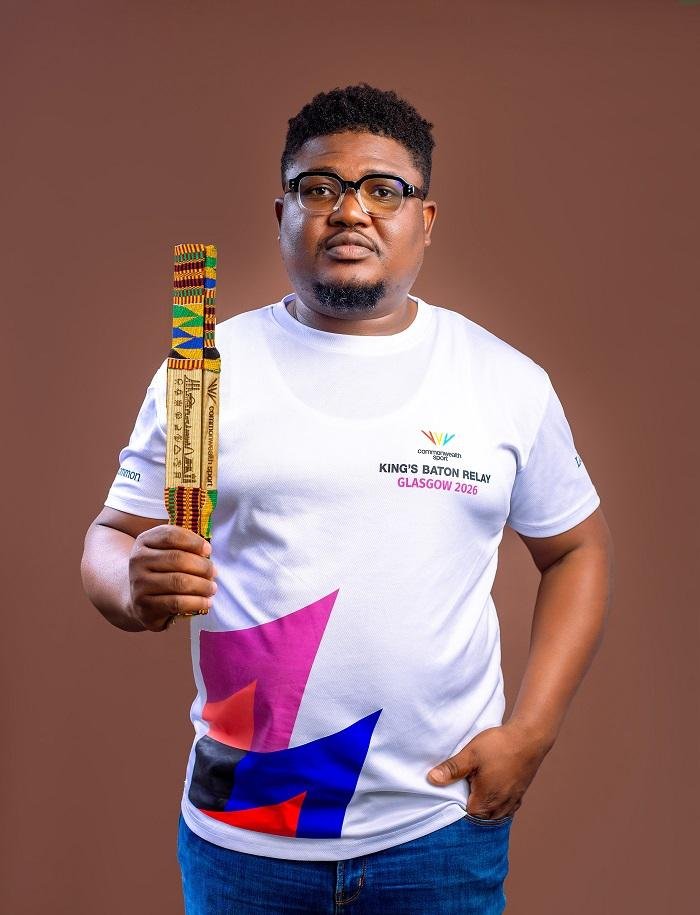
When the world’s eyes turn to the King’s Baton on its global journey, one of Ghana’s most profound artistic stories travels with it. It will be a story of creativity, culture, and national pride crafted by Albert Litela Obidiaba.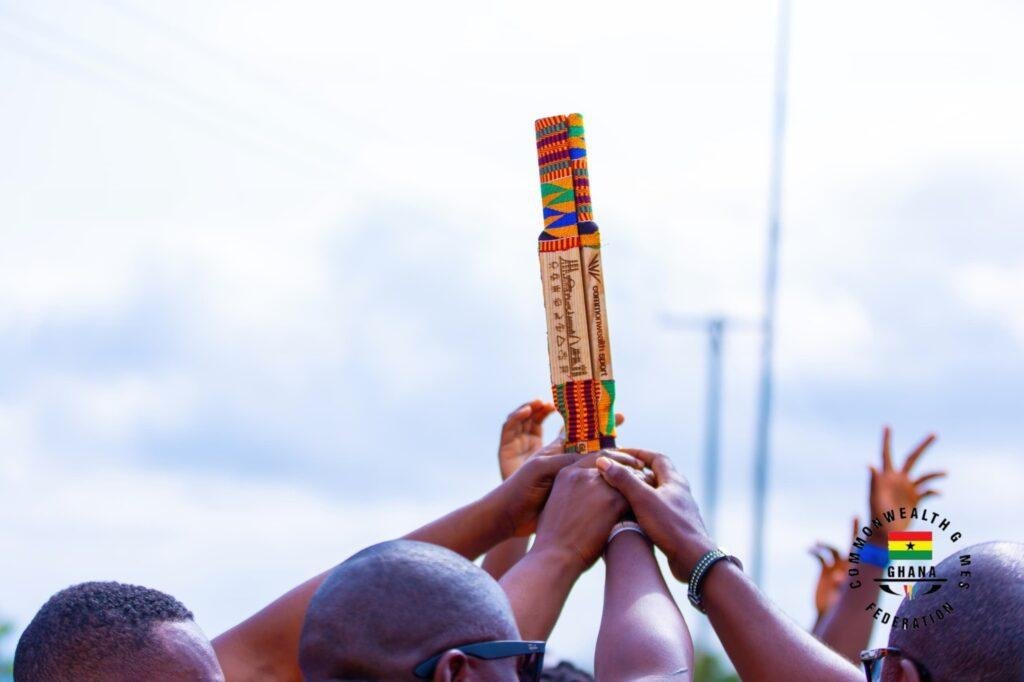
From the quiet town of Old Baika in the Oti Region, Albert’s journey as an artist has always been about telling stories. It is not just through words, but through symbols, textures, and meaning.
“From a young age, I was drawn to the power of art, knowing how colours and textures can capture not just emotion but culture and identity,” he recalls.
Today, his name has become synonymous with innovation rooted in traditional bridge between Ghana’s past and its global creative future.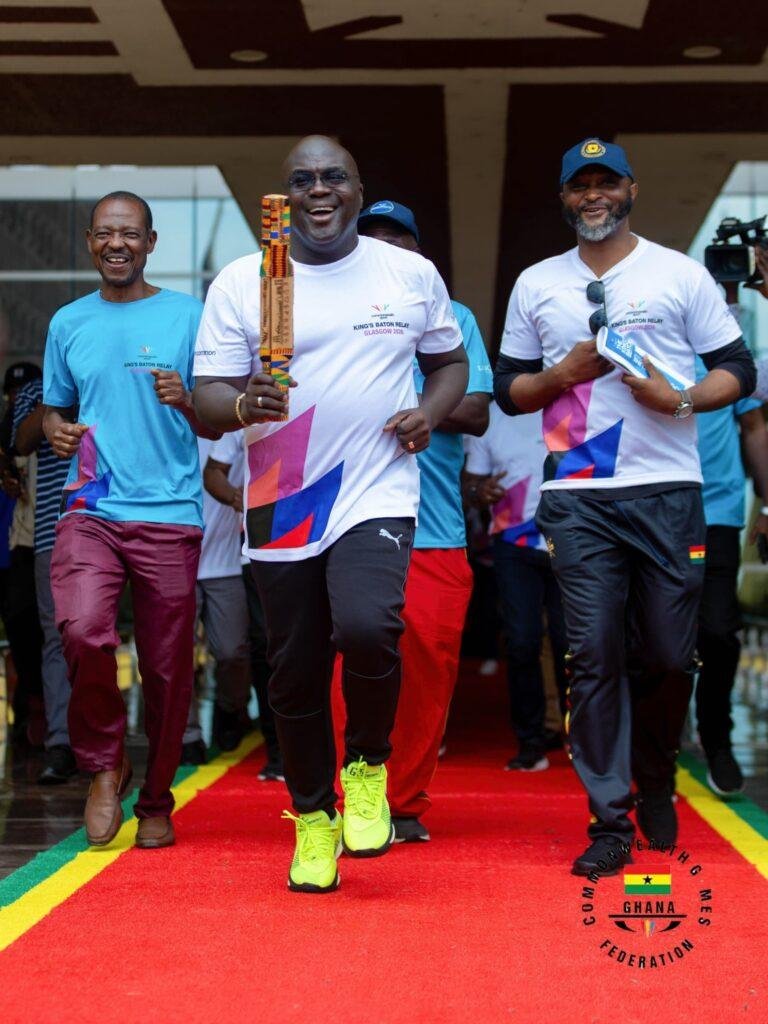
Albert’s love for art was born from curiosity. Surrounded by the vibrancy of Ghanaian culture; the patterns of kente, the stories behind Adinkra symbols, and the textures of daily life, he began sketching and crafting early on.
“Simple things told deep stories,” he says. “That fascinated me.”
As he matured, his art evolved into a personal mission to preserve and reinterpret Ghana’s heritage for a modern audience. His style reflects a seamless blend of culture and contemporary design, each piece a narrative of unity, history, and pride.
“I see art as storytelling through form and symbolism, it should feel rooted in purpose yet speak to today’s world,” he explains.
When the call came to design Ghana’s version of the King’s Baton, Albert saw it as both a national duty and a creative calling.
Recommended by mentors like Mr Charles Osei Asibey, who trusted his talent and understanding of Ghanaian symbolism, he embraced the project wholeheartedly.
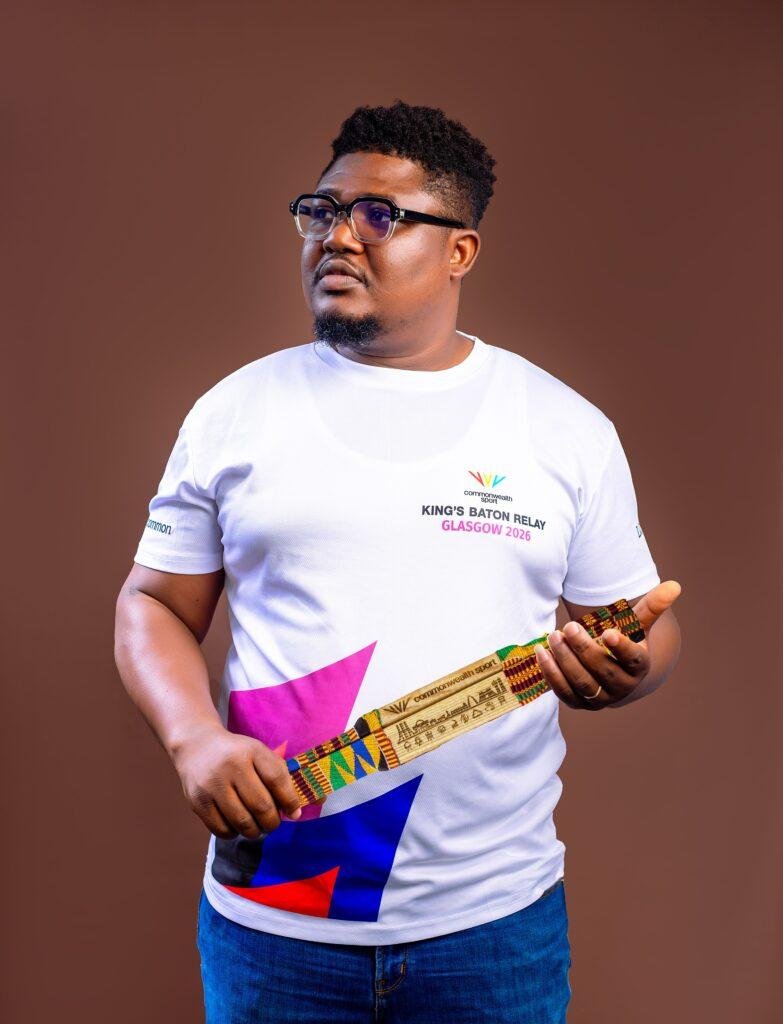
His vision was clear; to create a piece that would embody unity, pride, and the enduring spirit of Ghana.
Drawing from traditional motifs, he integrated textures inspired by kente weaving, representing hard work, continuity, and creativity. The golden tones symbolise strength and dignity, while the contours and natural motifs mirror Ghana’s landscapes and people.
“The King’s Baton had to tell our story of who we are, what we value, and how we see the world, it is more than art, it is identity in motion,” he said.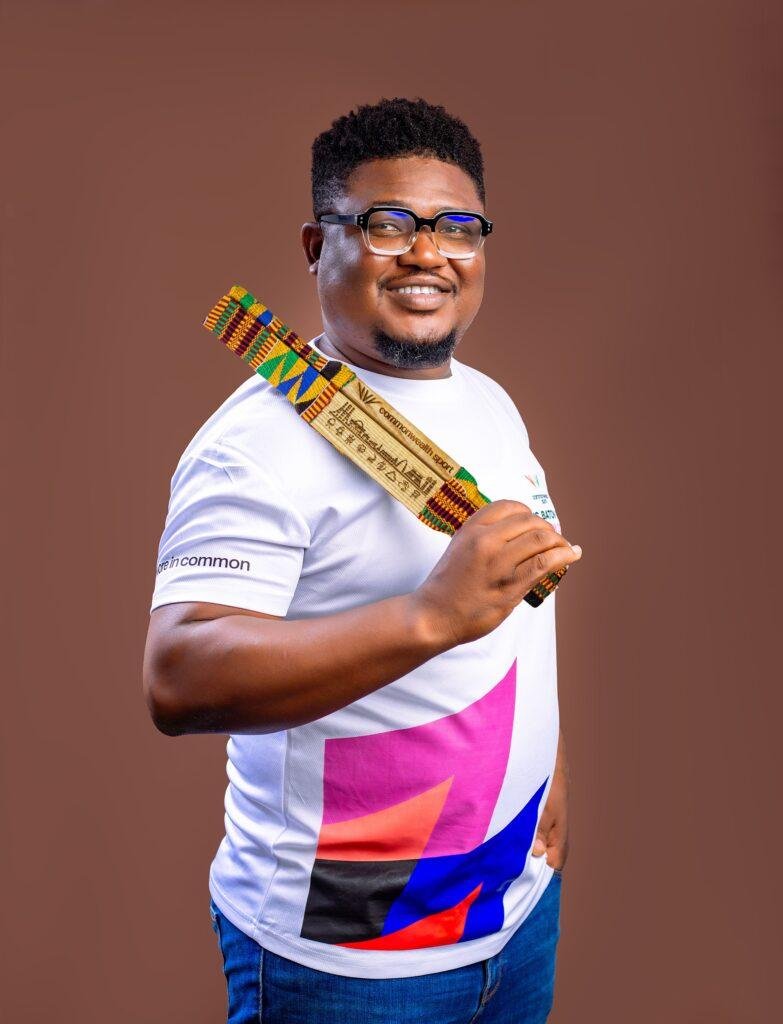
Every etch, every pattern carries meaning. From concept to completion, the entire process took three intense weeks which were filled with research, design sketches, consultation, and collaboration with skilled artisans.
“It was days and nights of work, but a lifetime of meaning,” he says with quiet pride.
Creating a design that represents all of Ghana’s diverse cultures was no small feat. Albert had to balance aesthetics, authenticity, and technology thereby using sustainable wood, carefully treated and certified, to reflect the nation’s commitment to nature and preservation.
“It wasn’t easy finding the right mix,” he admits. “But those challenges pushed me to think deeper. They made the final piece stronger — both artistically and symbolically.”
For Albert, Ghanaian culture is both muse and message. His works echo the values of unity, strength, persistence, and wisdom, drawn from Ghana’s traditions.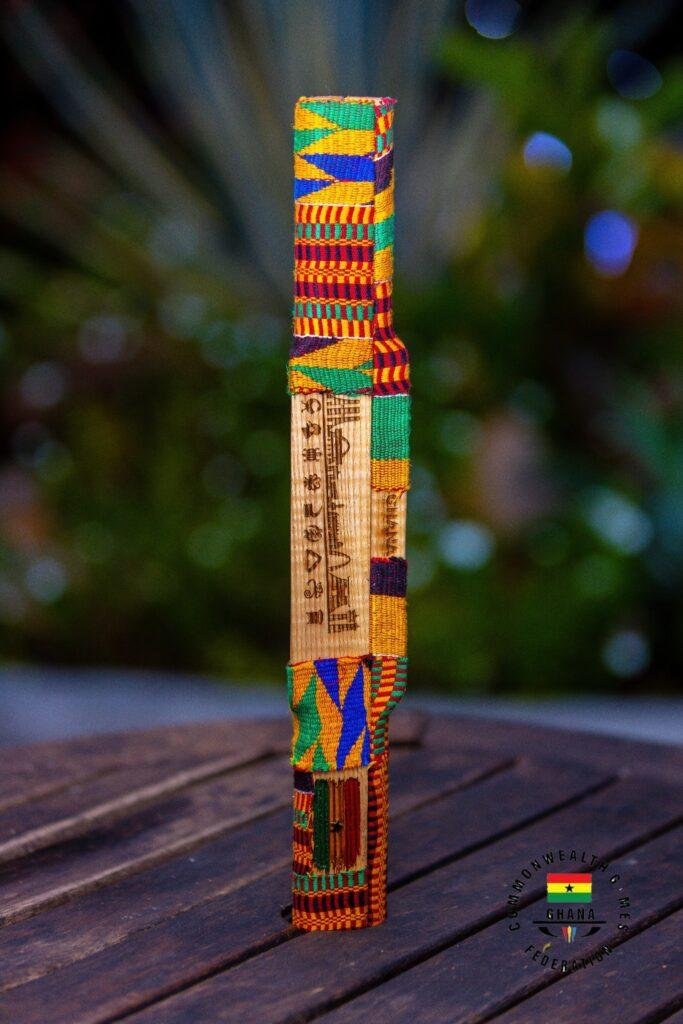
“Art preserves who we are and every line and symbol tells a story of belonging,” he said, and believes art is one of the most powerful tools for building national pride.
Designing the King’s Baton has been a defining moment in his creative journey and that it deepened his appreciation for cultural storytelling. “It taught me that creativity is also a form of service,” he said.
The experience has opened new professional doors, but more importantly, it gave him a renewed sense of purpose making him embrace a call to national duty.
“My soul will be glad even after my days on earth are over,” he said beaming with smiles.
Beyond the King’s Baton, Albert has worked on numerous projects celebrating Ghanaian identity through contemporary art and design. His ongoing works explore symbolism and heritage in new forms which includes blending materials, stories, and styles from across Ghana’s regions.
He is currently preparing projects that continue the conversation the baton began. They are about unity, creativity, and Africa’s evolving artistic voice.
To young artists aspiring to make their mark, Albert’s advice is for them to believe deeply in their craft and that the world is always looking for authenticity “which comes from knowing who you are and where you come from.”
On how he wants to be remembered, he said, “I want to be remembered as an artist who used creativity to celebrate culture and connect people. If my name is remembered as the one who designed Ghana’s version of the King’s Baton, that will be enough, because it means I carried Ghana in my hands, and shared her with the world.”
By Esinam Jemima Kuatsinu
Join our WhatsApp Channel now!
https://whatsapp.com/channel/0029VbBElzjInlqHhl1aTU27
Profile
Survival to service: Margaret Odame Donkor the breast cancer preacher
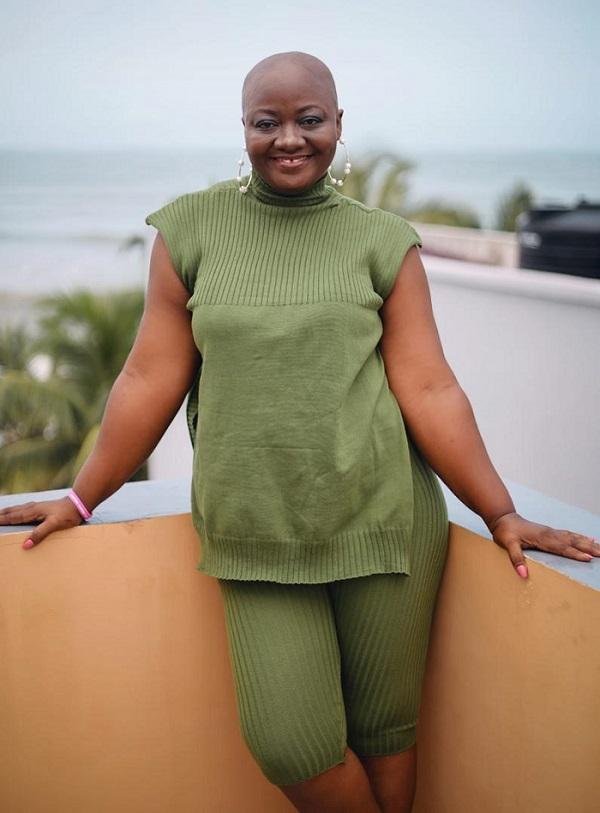
A ‘trotro’ bus heading to Nsawam was filled with the usual sounds from conversations, music, and sometimes a preacher delivering a message.
But when Margaret Odame Donkor rises to speak, she does not preach salvation or sell herbal remedies. Instead, she shares her journey as a breast cancer survivor, urging passengers to examine their breasts regularly, seek medical help early, and never lose hope.
Her pulpit is not a church, but the crowded minibuses of Ghana’s public transport system. Her message is not about repentance, but about survival.
She urges women to check their breasts regularly, encourages men to support their wives during health challenges, and reassures everyone listening that a cancer diagnosis is not the end of life.
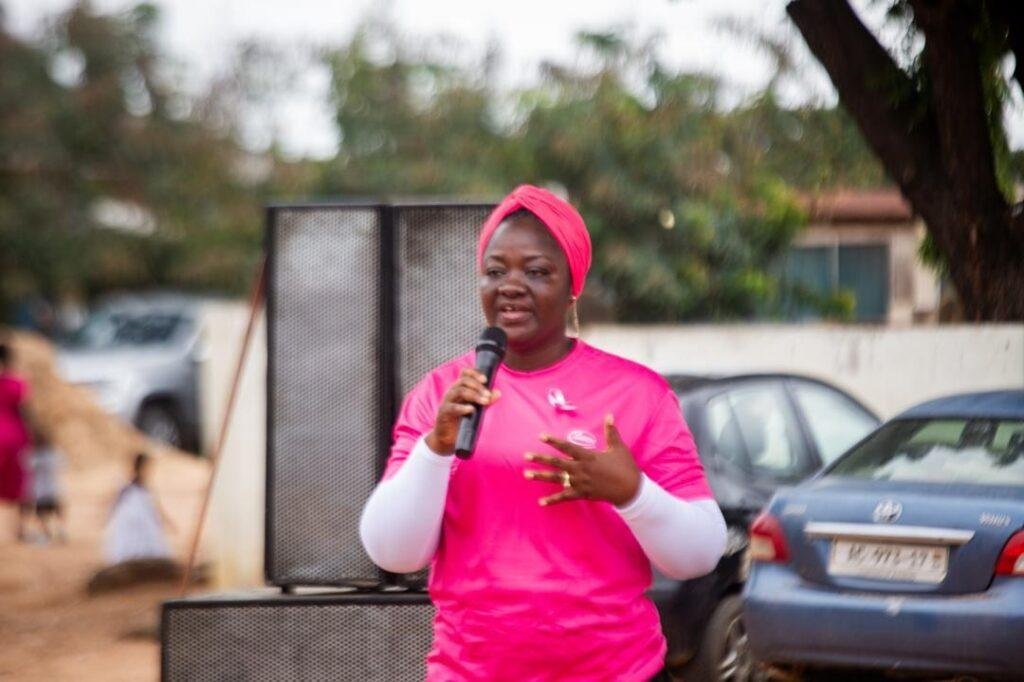
For Margaret, creating awareness is more than a duty-it is a calling born out of personal pain, fear, and triumph.
Her words carried weight because they come from lived experience.
At age 48, Margaret has walked through the valley of fear and pain, battled stage three invasive carcinoma, and emerged not just a survivor but an advocate determined to educate others.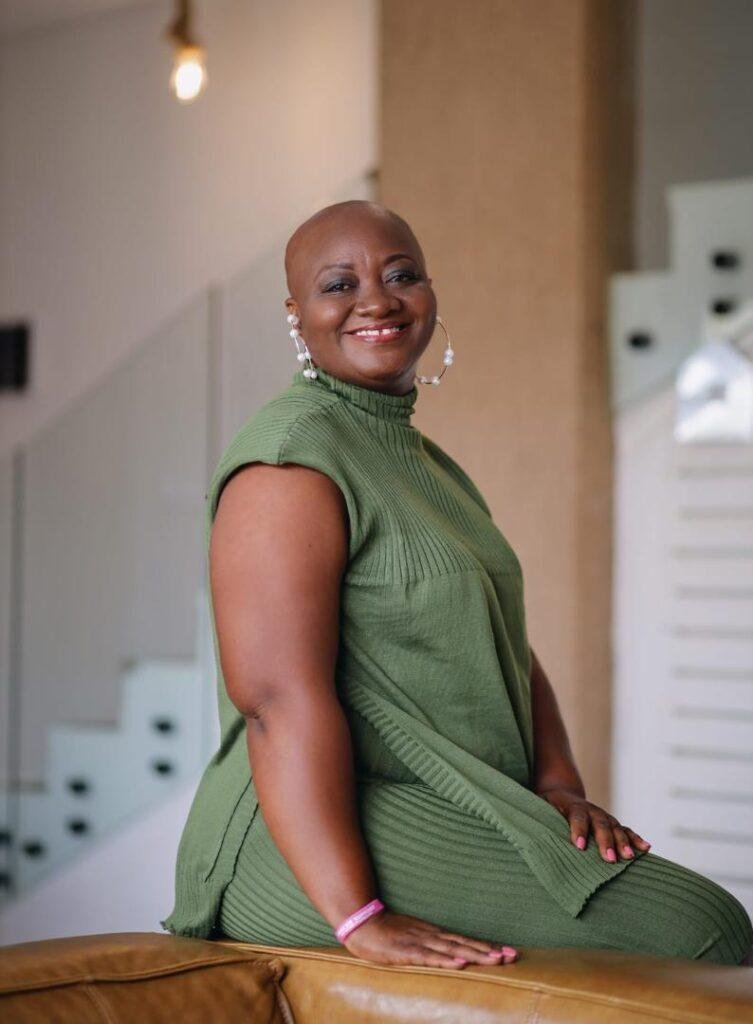
Cancer journey
Margaret’s encounter with breast cancer stretches back decades. At 22, she discovered a lump in her left breast. It was removed and declared benign. Relieved, she skipped regular checks and moved on. Then in 2021, the lump reappeared—this time spreading toward her armpit.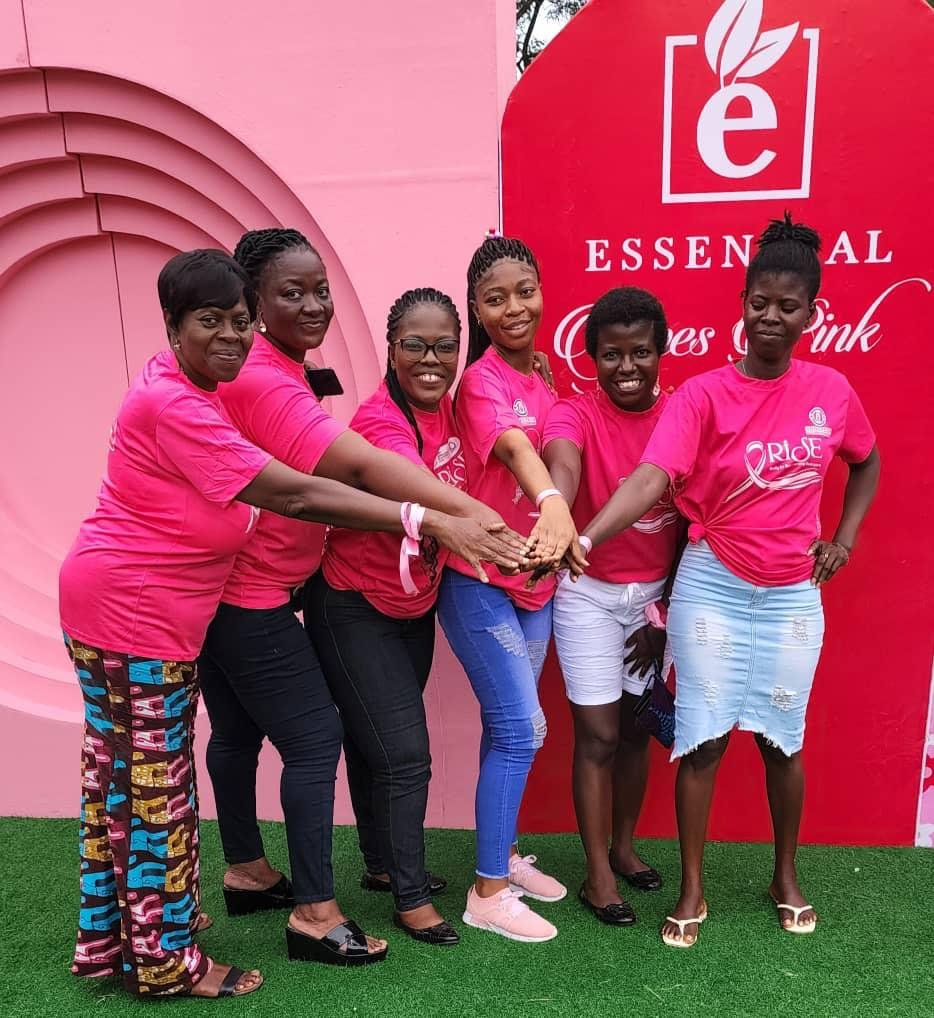
At a church screening in October 2022, doctors detected suspicious lymph nodes. Further tests confirmed her worst fear: stage three invasive carcinoma.
“It wasn’t easy,” she recalls softly. “But my faith in God kept me strong. My husband, children, family, friends, and colleagues formed an army behind me. Their prayers, visits, and encouragement gave me the courage to fight.”
“Be grateful every day because you never know what tomorrow may bring. No one has it all, but with love and support, you can endure,” she stated.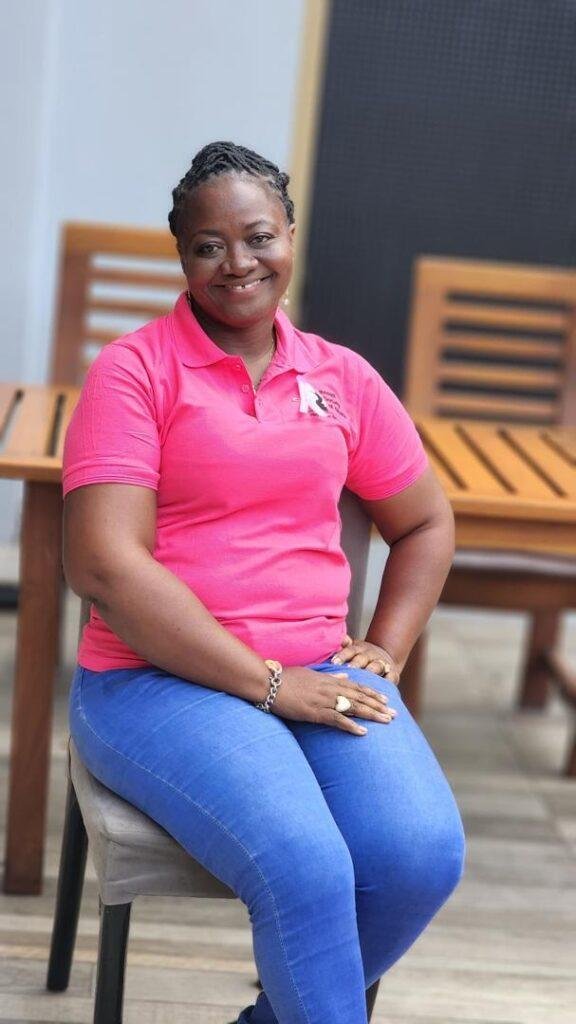
Her greatest fear remains recurrence and not living long enough to see her children graduate and become the people she dreams for them to be.
Before cancer disrupted her life, Margaret had found purpose in interpretation. In 2020, a friend spotted a Judicial Service vacancy and encouraged her to apply. After years of unsuccessful attempts at government jobs, she was reluctant, but she tried once more. This time, she succeeded and was posted to the Eastern Region, her home.
Today, she works at the Nsawam District Court, one of the busiest in the area. On a typical day, she arrives at 7:30am, prepares dockets, and confers with magistrates. She interprets proceedings in Twi, Ga, Hausa, and occasionally Ewe, ensuring that justice was accessible to all.
Her role is demanding. Cross-examinations require her to switch quickly between English and local dialects, while marriages often call for interpreting vows in couples’ preferred languages. Still, she thrives. “The registrars and magistrates I’ve worked with have been amazing. They make the environment very comfortable,” she stated.
Beyond the courtroom, Margaret is also an entrepreneur. In 2017, she founded Nubreed Décor, an events decoration business born from her childhood love for beautifying spaces. She recalls cutting paper decorations as a child and helping her cousin rent out chairs and decorate venues.
Balancing décor with court work was tough, and her health struggles after surgery made it even harder. Radiation left her with persistent rib pain, forcing her to slow down. “Now I hire more hands, which makes business expensive, but it helps me achieve my goals,” she explained.
Her biggest challenge as an entrepreneur remains finance. “The event industry is huge, but I have to work at my own pace and focus on my niche,” she admited.
Cancer changed how Margaret values people and relationships. She learned that those you least expect often become your strongest supporters. She urges families to stand by patients with prayers, encouragement, and financial support, reminding society that a cancer diagnosis is not the end of life.
Her advocacy extends beyond awareness talks. She dreams of establishing a counselling centre for young people and hopes Ghana will expand access to mammograms and radiotherapy centres. “Every patient deserves a chance at survival,” she said firmly.
She urged the youth to live peacefully and be their brother’s keeper, learn to be content and rely on God.
To women, she asserted that, “love yourselves and make breast checks routine while calling on Ghanaians to be open-minded, avoid being judgmental, and show love.
By Esinam Jemima Kuatsinu






